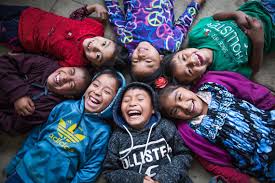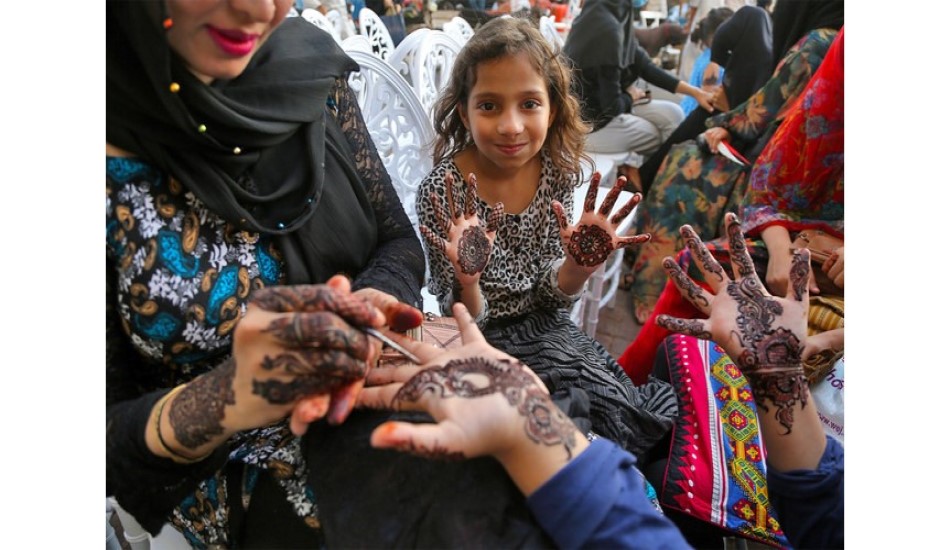WOMEN EMPOWERMENT
Women empowerment can be defined as the ability of women to make their choices, whether it is concerned with their lifestyles and career. For women to be able to share their viewpoints and to be able to have the same respect as men in a functional society. Pakistan is now seeing a surge of women’s rights movements, women asking for equality and the right to be given the same education and respect as men in this society, and has a history of influential women over the past years that have given girls across the country someone to look up to.
Even though Pakistan hasn’t been the front runner in women’s rights, we have seen solid movements and organizations fighting for women’s rights, for now, a long time from A.P.W.A., a nonprofit organization led by Rana Liaquat Ali, ensuring the promotion of moral, social, and economic welfare of the women of Pakistan to Asma Jahangir leading the movement with 400 women in Lahore in 1983 against the forceful enforcement of misogynistic laws by general Zia to now Aurat March, that’s even though criticized enormously has only seen more women standup in its support over the few years.
Ask any empowered woman in Pakistan right now, and she’ll have at least one prominent female figure significantly influence their life, which ensures that saying Pakistan has prominent female figures over the past years that also have helped in this case wouldn’t be an understatement. We have witnessed the First female prime minister of a Muslim country Benazir Bhutto and young girls like Malala Yousuf Zai fighting for the rights of women’s education and taking bullets by the Taliban and yet never holding back their will to stand up against the atrocities faced by the girls. Arfa Karim is an IT prodigy and the youngest Microsoft certified professional to Officer Marium Mukhtiar, the first female fighter pilot who gave up her life to save a population and school.
And to add to this list is the woman who has made all Pakistani women very proud. On June 30, 2020, Nigar Johar became Pakistan’s first female three-star general. Besides being a competent doctor and a brilliant administrator. We couldn’t go talking about women’s empowerment without talking about the women entrepreneurs of this country.
Amneh Shaikh-Farooqui, the founder of Polly And Other Stories, curates’ artisan-made products from across the country.
Mahwish Rafid is one of the brains behind Colish, a “luxury home fragrance brand” based in Karachi that specializes in making scented candles, reed stick diffusers, interior sprays, and recently, an eau de perfume collection.
Shafaq Sewani co-founded Fresh Basket, Karachi’s first agri-retail chain that promotes healthy eating” by providing easy access to fresh, natural, and hygienic produce and pantry items. Mahlaqa Shaukat is one of the founders of Aimfit, a digital fitness platform for women that helps women reach their fitness goals with the help of a personal coach and live workouts that can be done from home.
Lastly, anyone needs strong female influences to become an empowered woman. Still, the state must also provide reforms and policies that might help women and ensure their right to education and protection in the workplace environment. Let us dive deeply into some of these reforms under different governments.
Zulfikar Ali Bhutto Government
About 10 % of the seats in the National Assembly and 5% in the provincial assemblies were reserved for women, with no restriction on contesting general seats. Gender equality was explicitly guaranteed in the Constitution of Pakistan, adopted in 1973.
Zia-Ul-Haq’s Military Regime
The establishment of the Women’s Division in the Cabinet Secretariat and the appointment of the Commission on the Status of Women took place in his government. He also included a chapter on women in development in the Sixth Plan. In 1981, General Zia-ul-Haq inducted 20 women as members in the Majlis-e-Shoora and lastly, in 1985, the National Assembly elected through nonparty elections doubled women’s reserved quota.
Pervez Musharraf’s Regime
On September 2004, the Ministry of Women’s Development established an independent ministry. On July 2006, General Musharraf signed an ordinance to immediately release bail of around 1300 women languishing in jails on charges other than terrorism and murder. In late 2006, the Pakistani parliament passed the Women’s Protection Bill, repealing some Hudood Ordinances. The Cabinet had approved reserving a 10% quota for women in Central Superior Services. Before this, there was a 5% quota for women in all Government departments.
President Asif Zardari Government
The most prominent reform in this government was the establishment of the Shaheed Benazir Bhutto Centers for women in various districts to provide immediate relief to female victims of violence. Around one million women received direct assistance under Benazir Income Support Program, while the National Commission on the Status of Women was strengthened to monitor the violation of women’s rights.
Imran Khan’s Government
The Zainab Alert Response and Recovery Act and the Enforcement of Women’s Property Rights Act were among the first bills passed in the second year of his government. The I.C.T. Rights of Persons with Disability Act was also passed, which highlights special provisions for women and children with disability. Most prominently, the Anti-Rape law was passed due to the heinous act of highway gang rape incident that took place. The government also amended the Muslim Family Law Act, adding provisions on divorce and inheritance.
In conclusion, we could easily say that Pakistan has the potential for the rise of strong women if the government firmly ensures security for women and aims to develop further new laws for their empowerment.
This article is initially produced at Perspective.PK by Our Intern Maryum Ruhab


[…] women is 22% less than men. Additionally, the government of Pakistan fails to provide security for women of the lower social class and provide them with funds to run their households. This leads them to […]
[…] but more and more parents are now tending to arrange them according to their children’s choices.Women are becoming more empowered and can be seen much more in public arena.Family remains the core of social life in a Pakistani […]
[…] Myth# 4: “Pakistani Women Have Limited Rights“- […]